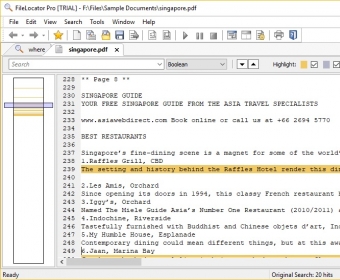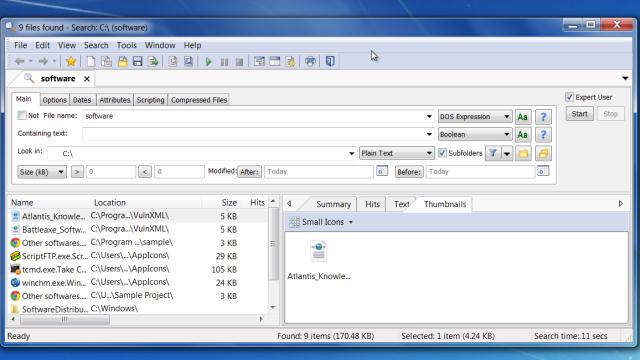

On the other hand, regular expressions allow for more specific searches, but are correspondingly more difficult to construct. You’re likely familiar with DOS expressions, which use ‘*’ as a wildcard, for example, as well as the “and, or, not” qualifiers for Boolean searches.
Filelocator pro regex examples free#
The free version, Agent Ransack, would likely suffice for all but the most demanding data sleuths: This paid version is for the pros.Īvailable in 32-bit and 64-bit versions, FileLocator Pro’s basic user interface allows for using Boolean searches, DOS expressions, regular expressions or exact word matches to find particular file names and content within those files. Prints the line number as well.Īdvanced options include returning content that is found at the beginning or end of lines, using regular expressions, or using wildcards.MythicSoft’s FileLocator Pro ($40) offers extensive search tools for those who need to dig among a variety of file types and content to find one specific piece of data.

Filelocator pro regex examples windows#
findstr /s /i Windows *.* - Searches every file in the current directory and all subdirectories for the word Windows ignoring letter case.findstr "windows" c:\documents\*.* - Searches any file under c:\documents for the string "windows".findstr "windows 10" windows txt - Searches for "windows" or "10" in the file.findstr /c:"windows 10" windows.txt - Searches the document windows.txt for the string "windows 10".netstat | findstr "123.123.123.13" - Runs the netstat command and returns any result that matches the string (in this case the IP address).ipconfig | findstr "192.168" - The command runs ipconfig and returns any result that matches 192.168./V - print only lines that contain a matchįindstr Examples That You May Find UsefulĬonsider these examples to try with findstr:./P - skip files with non-printable characters.


You can use the application to filter command-line outputs and search individual files or entire directory structures for files with matching text. It is available in all major Windows versions including Windows 10. In other words, if you want to find specific exact match text strings in files, in a command-line output, or elsewhere, you may use the free findstr command on Windows to do so. Findstr is a built-in tool of the Windows operating system that you may run from the command line to find text in files or in command-line outputs.


 0 kommentar(er)
0 kommentar(er)
